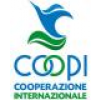- Search jobs
- Nigeria
- Head of Programmes

Head of Programmes
COOPINigeriaCOOPI is looking for a Head of Programmes in Nigeria
COOPI started its operations in North-East Nigeria in July 2014 to carry out a rapid evaluation of the most relevant constraints suffered by the Internally Displaced People (IDPs) displaced by the food crisis and the Boko Haram insurgency in the Lake Chad Basin. The organization started in 2021 new operations in North-West, in Sokoto and Kaduna regions, focused on DRR and resilience building of communities affected by natural disasters . COOPI aims to support the most basic and pressing needs of communities affected by the conflict. COOPI is providing multi-sectoral emergency response to the IDPs, returnees, and host population focused on food security, nutrition, protection, and education . COOPI’s main area of intervention is Yobe, but also in Kaduna and Sokoto states in the Northwest Nigeria with Disaster Risk Reduction programs. COOPI is currently implementing projects funded by UN agencies, USAID, ECHO .
Description of the role
The Head of Programmes (HoP) is the focal point for COOPI programs in Nigeria . S / he will be responsible for defining programs, drafting intermediate and final project narratives and budgets. He / she will manage the supervision, monitoring and coordination of ongoing projects and support the Head of Mission in relations with donors and partners. S / he will report directly to the Head of Mission.
Main responsibilities
Project Development
- Lead the definition and implementation of the country program strategy , with the support of the HoM, Emergency Response Lead and Program Advisors
- Review priorities and strategies of main institutional donors and propose the submission of project proposals according to COOPI’s expertise and geographical presence;
- Lead the development of new project proposals (ECHO, USAID, WFP, EU and various UN Agencies);
- Review priorities and evidence from ongoing and closed grants;
- Collaborate with Head of Operations and Country Admin for logistical and financial requirements;
External coordination
Monitoring & Evaluation, Accountability and Learning (MEAL)
Project Reporting
Human Resources Management
Communication and visibility
Requirements
Essentials
Desired
We reserve the right to close the vacancy prior to the application closing date, once a sufficient number of applications have been received.
Please note that only the shortlisted candidates will be contacted. Interviews will be conducted on rolling basis and the vacancy will be closed when filled, thanks for understanding.
COOPI Cooperazione Internazionale is an Italian secular and independent humanitarian organisation fighting against all forms of poverty to improve the world. Founded in 1965, today COOPI is present in 33 countries in Africa, Latin America and the Caribbean and the Middle East, with both emergency and development projects carried out by expatriate staff – an average of over 270 people per year – and national staff. The main institutional funders are the European Union – ECHO and INTPA – USAID, UN agencies, the Italian Government, local authorities and other European Governments.